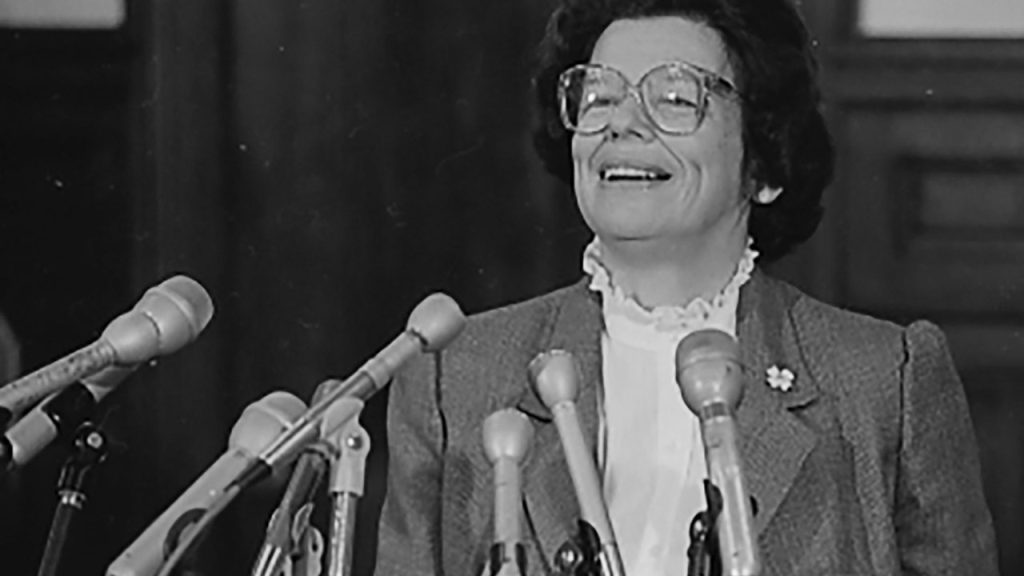Ellen Ash Peters, the first woman to serve as Connecticut’s chief justice, has passed away at the age of 94. She was also the first female faculty member at Yale Law School and wrote the majority opinion in the state Supreme Court’s landmark school desegregation ruling in 1996. Her death was confirmed by the Connecticut Judicial Branch, but the cause and location were not disclosed. Current chief justice Richard Robinson praised Peters as a fearless legal giant dedicated to upholding the rule of law and ensuring equal access to justice for all.
Peters was appointed to the state Supreme Court in 1978 by then-Gov. Ella Grasso, the first woman to be elected governor of a U.S. state who was not a spouse or widow of a former governor. Peters became chief justice in 1984 and served on the court until 1996, taking part-time senior status. In her last year as chief justice, Peters wrote the majority opinion in the Sheff v. O’Neill case, declaring the segregation of Hartford-area schools unconstitutional. The ruling led to the creation of magnet schools and school choice options to address the racial isolation in Hartford schools. She also presided over cases ranging from death penalty appeals to property disputes and led efforts to prevent gender and racial bias in the court system.
Born in Berlin, Germany in 1930, Peters and her family fled Nazi rule in 1938 and emigrated to New York City. After graduating from Swarthmore College and Yale Law School, she became the first female faculty member at Yale Law School in 1956 and earned tenure in 1964. Peters continued to teach law at Yale even after her appointment to the Supreme Court. Former U.S. Supreme Court Justice Ruth Bader Ginsburg praised Peters for inspiring generations of women law students, giving them a reason to believe in their aspirations.
Political leaders and legal experts have praised Peters for her dedication to ensuring fair and equal access to justice in Connecticut. Gov. Ned Lamont called her a trailblazer and emphasized the importance of her work in the school desegregation ruling. Former Connecticut Chief Justice Chase Rogers described Peters as a brilliant jurist who broke barriers for women in the judiciary and served as a role model for all judges. Peters’ husband, Phillip Blumberg, who was a professor and dean at the University of Connecticut School of Law, passed away in 2021, leaving behind a legacy of legal scholarship and advocacy.
Ellen Ash Peters’ legacy as a trailblazing jurist, advocate for justice, and mentor to future generations of lawyers and judges will be remembered and celebrated by those who knew her. Her impact on the legal community in Connecticut and beyond continues to be felt through her landmark rulings, dedication to equality, and commitment to upholding the rule of law. The passing of Peters marks the end of an era in the Connecticut judiciary, but her contributions will endure as a reminder of the importance of diversity, fairness, and equal access to justice in our legal system.













